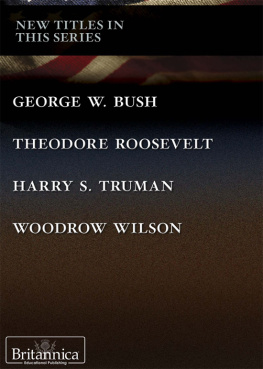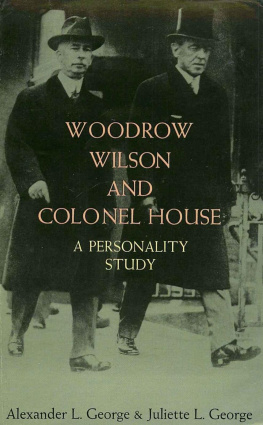Spotlight
Spotlight Books
57 Gloucester Road
CLAPHAM
MK41 6ZS
With honour of the Liam Patel
Online publishing centre.
Published in the UK by Spotlight Books, Clapham.
Spotlight Books 2020
The moral rights of the authors have been asserted
Database right Spotlight Books.
This book is located in the public domain.
All rights reserved. No part of this publication may be reproduced, stored in a retrieval system, or transmitted, in any form or by any means, without the prior permission in writing of Spotlight Books, or as expressly permitted by law, or under terms agreed with the appropriate reprographics rights organization. Enquiries concerning reproduction outside the scope of the above should be sent to the Rights Department, Spotlight Books, at the address above. http://www.spotlightBooks.xyz
You may also visit our contact page for more information regarding supporting the project.
You must not circulate this book in any other binding or cover and you must impose the same condition on any acquirer.
Data available
Ebooked in the UK
ISBN 10: 599892234
ISBN 13: 9780599892231
INTRODUCTION
These addresses of President Woodrow Wilson represent only the most recent phase of his intellectual activity. They are almost entirely concerned with political affairs, and more specifically with defining Americanism. It will not be forgotten, however, that the life of Mr. Wilson as President of the United States is but a short period compared with the whole of his public career as professor of jurisprudence, history, and politics, as President of Princeton University, as Governor of New Jersey, as an orator, and as a writer of many books.
Surprise has been expressed that a man, after reaching the age of fifty, should be able to step from the "quiet" life of a teacher and author into the resounding regions of politics; but Mr. Wilson's life as a scholar, professor, and author was not at all quiet in the sense of being easy or untouched with exciting chances and changes, and, in the second place, he carried into politics the steadying ideals and the methodical habits of his former occupation.
As these addresses themselves prove, he has retained something of the teacher's interest in showing the relation between specific instances and the general forms of thought or action of which they are a part. Not fact alone, but principle, is what he seeks to discover to his audiences. In the addresses made in 1913 it is apparent that his main effort was to fasten attention upon the principles of international justice and good will and to restrain the impulses of those Americans who were inclined to hasty action with reference to Mexico. From the beginning of the Great War to a point not much earlier than our own entrance into the struggle, he counselled neutrality and inaction, with what motives one must judge from his statements and from events. Only a few speeches belonging to this period have been included in the present collection. When it became practically certain that war between the United States and Germany was inevitable, there came into his utterances a new temper and a more direct kind of eloquence. With scarcely an exception, this collection includes every one of his addresses made between August, 1916, and February, 1918.
Some of the addresses are state papers, read to Congress, and were carefully composed. Others, delivered in various places, appear to have been more or less extemporaneous. All are full of their author's political philosophy, and many of them contain expressions of his opinions on general subjects, such as personal character and conduct.
In order more fully to appreciate the weight of experience and the maturity of reflection which give value to his words, it will be worth while to consider Mr. Wilson's entire career as a scholar and man of letters, paying particular attention to the growth of his political ideals and to the qualities of his style.
To be a literary artist, a writer must possess a constructive imagination. He must be a man of feeling and have the gift of imparting to others some share of his own emotions. On almost every page of President Wilson's writings, as in almost all his policies, whether educational or political, is stamped the evidence of shaping, visionary power. Those of us who have known him many years remember well that in his daily thought and speech he habitually proceeded by this same poetic method, first growing warm with an idea and then by analogy and figure kindling a sympathetic heat in his hearers.
The subjects that may excite an artist's imagination are infinitely numerous and belong to every variety of conceivable life. A Coleridge or a Renan will make literature out of polemical theology; a Huxley will write on the physical basis of life with emotion and in such a way as to infect others with his own feelings; a Macaulay or a Froude will give what color he please to the story of a nation and compel all but the most wary readers to see as through his eyes. We are too much accustomed to reserve the title of literary artist for the creator of fiction, whether in prose or in verse. Mr. Wilson is no less truly an artist because the vision that fires his imagination, the vision he has spent his life in making clear to himself and others and is now striving to realize in action, is a political conception. He has seen it in terms of life, as a thing that grows, that speaks, that has faced dangers, that is full of promise, that has charm, that is fit to stir a man's blood and demand a world's devotion; no wonder he has warmed to it, no wonder he has clothed it in the richest garments of diction and rhythm and figure.
There are small artists and great artists. Granted an equal portion of imagination and an equal command of verbal resources, and still there will be this difference. It is an affair of more or less intellectual depth and more or less character. If character were the only one of these two things to be considered in the case of Mr. Wilson's writings, one might with little or no hesitation predict that the best of them would long remain classics. They are full of character, of a high and fine character. They have a tone peculiar to themselves, like a man's voice, which is one of the most unmistakable properties of a man. It would be no reflection on an author to say that his point of view in fundamental matters had changed in the course of thirty or forty years; but the truth is that with reference to his great political ideal Mr. Wilson's point of view has not widely changed. The scope of his survey has been enlarged, he has filled up the intervening space with a thousand observations, he sees his object with a more penetrating and commanding eye; but it is the same object that drew to itself his youthful gaze, and has had its part in making him
"The generous spirit, who, when brought Among the tasks of real life, hath wrought Upon the plan that pleased his boyish thought."
The world, in time, will judge of the amount of knowledge and the degree of purely intellectual force that Mr. Wilson has applied in his field of study. A contemporary cannot well pronounce such a judgment, especially if the province be not his own.
In the small space at my disposal I shall try, first, to say what I think is the political conception or idea upon which Mr. Wilson has looked so steadily and with so deep emotion that he has made of it a poetical subject. And then I shall venture to distinguish those processes of imagination, that artistic method, which we call style, by which he has elucidated its meaning for his readers so as to win for it their intelligent and moved regard. The inquiry will take into account his earliest book,















